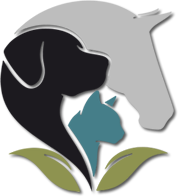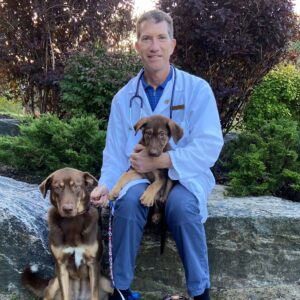| COVID19 Update |
| Dear Valued Clients,
As this world seems to continue to endure turmoil and tragedy, the fact that the pandemic seems to finally be coming under some control seems like a ray of sunshine for us all. There are several factors for us to still take into serious consideration before this will occur. Not the least of which is that COVID19 is still around and causing grief and loss. As we have spoken to a few times prior, the pandemic, and the resultant positive tests sporadically in our staff, caused us to have to pivot and adjust on more than one occasion. This causes extreme duress for our team members and places an added level of stress and complexity to how we can continue to offer our services. Surely we are no differently affected than many other businesses that have been through similar circumstances. We recognize and accept that all businesses have been affected in many negative ways. The major difference for us is the fact that we are dealing with the health and wellness of our patients. We are not simply selling a product, we are providing health care and in many situations, we are saving lives. Quite simply put, we still cannot afford for our hospitals to be in a position of not being able to be present for the care we seek to provide each and every day. There has been much talk “in the news” about the increasing veterinary shortage in Canada. I will take this opportunity to offer some insight into what has and is happening in our industry to help those of you to understand our position. You will also find an “Over the Counter” communication written by one of our client services team members at our Bracebridge Animal Hospital. Carolyn has summarized all of our team’s thoughts and feelings and put “pen to paper” to help our clientele understand, from our perspective, how we are meeting the challenges we face. I encourage all of you to read her words as they truly are the words of our collective team who have their feet on the ground in our hospitals. The veterinary realm is in a terrible position at present. I would like to say things will get better. Or even to say, things will get worse BEFORE they get better. The reality is that things are going to get worse and stay that way for a long time. There are several factors involved. I can recall being personally involved in a round table discussion amongst practice owners at a small forum in 2007 and even at that time we were predicting much of what is unfolding over the past few years. Again in 2010 and 2012 I was involved with other industry experts in discussions to address bringing forth ideas of how to deal with the looming veterinary shortage, which was predictable to say the least. Yes, that many years ago we knew that we were in trouble. Demographics alone supported that by around 5 years ago we would start to see the Baby Boomer veterinarians beginning to retire in numbers that new graduates from our veterinary schools would not be able to replace. Baby Boomers are commonly accepted by demographers as those people born between the years 1946-1964. This span of almost 20 years of births led to a huge portion of the Canadian population. In 2015, by far the majority of veterinary practice owners were from this population (aged 53-69 years in 2015). Our industry began to see a very steady increase in the sale, or closure, of veterinary practices with individuals from this generation retiring. This trend accelerated rapidly over the next few years as corporate consolidation began to gain momentum in our veterinary realm. Then, as we all recall, COVID19 came down on our world and hit us hard. Everything was uprooted, insecurity and uncertainty ensued. All industries were poised for what was thought would be an economic catastrophe. In the veterinary realm this did not occur. In fact, it rapidly became obvious that quite the opposite was occurring. Several people decided to buy, adopt or rescue pets. In large part this is attributable to the fact so many people were working from home, either by choice or being forced to. Many people were simply home because they did not have work at all or had been reduced substantially in their ability to work. Several individuals were isolated and lonely. Many families that would not have chosen to own a pet, chose otherwise. Adding to this, is the very obvious fact that younger generation veterinarians are graduating with greater than ever debt burdens and several younger veterinarians simply do not wish to live under the pressure of all that comes with practice ownership in addition to being a medical practitioner and the responsibilities that come with our profession. During this period of COVID19 a much higher number of baby boomer veterinarians simply decided now was the time to retire rather than having to deal with the seemingly constant moving target of having to navigate through the pandemic. In addition, several practices simply decided to close their doors to new clients and even new pets owned by past or present clients. Emergency and referral hospitals have been inundated for too many years now and especially during the pandemic. Waiting times at any one of the handful of specialty emergency hospitals in Ontario were, and still are, commonly between 15-24 hours… An almost inconceivable thought when your pet is in a truly emergent situation. And still, more and more hospitals continued to close their doors while more and more pets were being purchased or adopted. This accelerated the change in our industry even more and has led to vastly increased problems on myriad levels. The provincial governments and veterinary schools have long ignored the warning signs the demographics have been screaming about for years and did NOT increase enrollment nor create more veterinary colleges. The resultant multilayered effect is that now we truly have a crisis in our industry. A melting pot of factors brought this to a tipping point. And, unfortunately, we have now well surpassed that tipping point and cannot go back. Canadian veterinary schools graduate approximately 350 new veterinarians ready to enter the workforce each year. It is estimated that Ontario alone needs more than 2500 veterinarians right NOW. A recent article in British Columbia has stated that the province could use around 800 veterinarians immediately. In the USA approximately 2600 new graduates file out of the veterinary colleges each year. However, as of early 2021 (the numbers will be worse now) approximately 2000 baby boomer vets were retiring each year and that number does not include all the other reasons for veterinarians leaving the industry. It is almost certainly accurately estimated that over 40,000 veterinarians are going to be required in the USA by 2030 to replace those retiring and the increased need for veterinary care due to the burgeoning pet ownership growth. The numbers in Canada are commensurate, just with our smaller population. People always talk about burnout, fatigue, depression and mental illness in various health care sectors. It is commonly thought suicide rates as being considerably higher in the dentistry field than in the average population. One of the aspects that bothers me most is that I have always felt that anyone and everyone ought to be able to have a pet if they so choose. The reality, like so many other things in life, is that what ought to be and what can be are not inextricably linked. The cost of veterinary care is accelerating at an alarming rate and there is no end in sight. It is sad to say, but people really need to think of whether they should own a pet and whether they can afford to own a pet rather than whether they wish to own a pet. At the beginning of the pandemic our hospitals made an oath and collectively we agreed that we are here to provide service to the pets of Muskoka. ALL pets. Those that are our clients, those that are here as cottagers or transients in our region and those that are new pet owners. This has been an incredibly challenging oath to live up to and it is increasingly more burdensome each and every day. To all of our clients; every single one of you that have displayed patience and have been respectful and appreciative of us, we offer you our collective and heartfelt thank-you. We are desperately trying to provide the care at a level of professionalism we have always sought to provide. It is part of our mission and our foundation to provide the very best care Muskoka can offer. However, several challenges lay before us. As a result, we have made the conscious choice to continue to operate as we are for the foreseeable future. We ask again, to help us through this process. We value and appreciate all of you who have been so wonderful to us and recognize the daily efforts we put forth to help you and your pets. On behalf of the entire team of Bracebridge and Huntsville Animal Hospitals, Sincerely,
Dr Jason McLeod |






